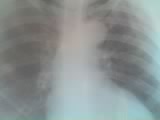

Leading Cancer Organizations Highlight Consultations on Noncommunicable Diseases
His Excellence Health Minister Makweng Kaput
There are two critical consultations with a 19th April submission deadline this week and a series of consultations with Member States in the next two months which will shape and impact on establishing cancer and NCDs as a global priority.
• Options for strengthening and facilitating multisectoral action for the prevention and control of NCDs through partnership http://www.who.int/nmh/events/2012/consultation_march_2012/en/index.html
• A comprehensive global monitoring framework, including indicators, and a set of voluntary global targets for the prevention and control of NCDs http://www.who.int/nmh/events/2012/consultation_april_2012/en/index.html
We are members of UICC and NCD Alliance and enclose the responses to the above for your information and comment, which we fully support.
We encourage you to engage and submit a response by the 19th of April as well as prepare for the upcoming consultation of Members States on 26th April in Geneva and the World Health Assembly (WHA), which will take place from May 21st to May 26th 2012 also in Geneva.
Multisectorial action for prevention and control of NCDs through partnership
NCD Alliance has prepared a comprehensive response to the options proposed in the discussion paper and propose a comprehensive but phased approach headed by a multisectoral coordinating platform with UN interagency. We welcome an opportunity to discuss your views on these proposals.
Comprehensive global monitoring framework, indicators and targets for the prevention and control of NCDs
In line with the commitments made by Member States in the United Nations Political Declaration on NCDs, NCDA and UICC strongly supports the broader range of indicators for NCD surveillance proposed in the WHO proposal dated 22nd March 2012, including:
Collection of data on cancer incidence and type (incl. stage where appropriate)
Addition of a proposed target on physical activity
Vaccination against infectious cancers: Human Papillomavirus (HPV) and Hepatitis B virus.
Monitoring the prevalence of women between ages 30-49 screened for cervical cancer at least once.
Access to palliative care and pain relief medications.
We urge you to support this position and ensure that these indicators are retained during Member State negotiations.
I want you to know that cervical cancer is killing women in DRC. It is the killer no1 by cancer in our country; a preventable disease and nothing is done by now.
Please be aware that people in Democratic Republic of Congo, are dying by cancer without any assistance and even preventable cancers like cervical and breast cancers. We know what to do, we have the solution in mind but we don't have money to settle a strong program of cancer prevention. You can't imagine the emotion we have when we see people dying in front of us by a disease that we could prevent and we don't see it coming in the close future!!! Health care professionals have become powerless in front a cancer case. No chemotherapy available, no radiotherapy, no palliative care service and no prevention!! DRC is a big country in Africa with more than 70 millions of people among them 60% are women and no women has access to cervical cancer screening, breast cancer screening,...!! So, where is the money to fight cancer and other NCDs in DRC? Even if we are not paying now, we will pay for ever if nothing is done today.
Our organization, AGIR ENSEMBLE, member of UICC have realize a lot of progress in cervical cancer prevention: 25 health professionals (6 doctors and 19 nurses) have been trained in cervical cancer screening and HPV vaccination in the city of Goma, a guideline for sensitization on screening is available, a training book is available and survey report on level of adhere and understanding of women of cervical cancer screening program is available too. The country, Democratic Republic of Congo, have gained an international recognized colposcopist trained by IFCPC (International Federation on Cervical Pathologies and Colposcopy) in conjunction with Cape Town University/South Africa since January 2012 (Dr Mateus Kambale Sahani) but we don't have equipment to begin a colposcopy service to prevent cervical cancer and other cervical diseases. This is a great gain but is not used for the benefit of our population because of missing committed funders for the service to be available. We miss real leaders and committed funders to address and fight NCDs in developing countries. The time to act is now.
However, there remain some areas where the set of proposed targets fails to match the ambitions and the scope of the Political Declaration and we urge you to consider our recommendations and request an appointment to discuss these with you in more detail.
As the leading voluntary Democratic Republic of Congo-based organization addressing cancer and NCDs, we urge Democratic Republic of Congo to take a strong leadership role in this process of translating commitments into action. Please
• Recognise prior commitments made in the UN Political Declaration
Dramatically reduced set of global voluntary targets fail to match the ambitions and scope of the political declaration
The ability to measure simple outcomes for breast cancer – the most common cancer in women in all resource settings – should not be overlooked and we call for indicators in saturated fats and added sugar
• Stand up for the rights of people living with cancer and other NCDs now
Include a target to achieve a minimum of 80% availability of affordable, quality-assured essential NCD medicines and technologies in public and private sectors.
• Demonstrate leadership at the World Health Assembly in May
Reporting every five years is simply not frequent enough to keep attention adequately focused on NCDs. Agree to reporting progress every two years. This can be done and will elevate NCDs to the appropriate level of priority on national and global agendas.
Resolve to adopt the target to reduce preventable deaths from NCDs by 25% by 2025 in May as the central goal of the next global plan on NCDs.
With kind regards
Mateus Kambale Sahani, M.D
AGIR ENSEMBLE/Goma-DRC






















































































































Aucun commentaire:
Enregistrer un commentaire